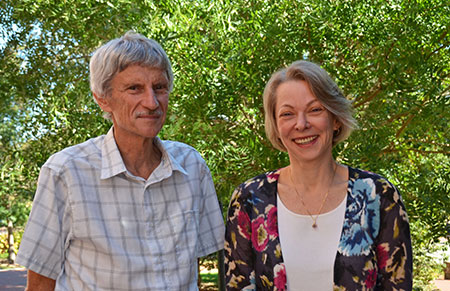- Membership
- Perks and Discounts
- Things To Do
- Resources
- News
- About
- Shop
Related Content
Former School of Government Dean Receives Holshouser Award
March 19, 2024
This article was updated March 20, 2024. Mike Smith ’78 (JD), dean emeritus of the...
Read MoreThe Business of Caring
March 8, 2024
The American economy is confusing. Growth is up, but consumer confidence is down. Inflation is...
Read More‘A Compelling Project for Good’
March 8, 2024
When Irving Hoffman ’94 (MPH), director of international operations for the Institute for Global Health...
Read More-
2024
-
2023
-
2022
-
2021
-
2020
-
2019
-
2018
-
2017
-
2016
-
2015
-
2014
-
2013
-
2012
-
2011
-
2010
-
2009
-
2008
-
2007
-
2006
-
2005
-
2004
- Academics and Athletics
- Admissions
- Alumni Profiles
- Alumni Recognition
- Around Town
- Arts
- Books
- Campus Profile
- Campus Safety
- Carolina Alumni Awards
- Carolina Alumni Leadership
- Carolina Alumni Programs and Outreach
- Carolina Alumni Reunions
- Carolina Alumni Review
- Celebrations
- Championships
- College and Costs
- Commencement
- Coronavirus
- Discovery
- Extracurricular
- Faculty
- Faculty Awards
- For the People
- Go Heels
- Greek Life
- Hark the Sounds
- Higher Education
- Homecoming
- In Class
- In Memoriam
- Innovation and Technology
- Issues
- Object Lesson
- On View
- Our Treescape
- Philanthropy
- Podcast
- Public Service
- Race and Reckoning
- Research
- Sexual Assault
- Silent Sam
- Sports
- Structures
- Student Achievement
- Students
- Timelines
- Tuition and Financial Aid
- UNC Libraries
- UNC’s History
- Undergraduate Spotlight
- University Achievements
- University Awards
- University Budget Issues
- University Development
- University Leadership
- University News
- University Rankings
- What We Do
- Who We Are
- Young Alumni
- Yours at Carolina
UNC Researchers Leading $61 Million Asthma Study
Posted on Oct. 10, 2017
A new five-year, $61 million study led by UNC researchers will work to identify better treatments for asthma attacks. (Photo by Gillings School of Global Public Health)
A person struggles, then panics, gasping for air but unable to inhale — as if “I were trying to breathe air underwater” or “an elephant is sitting on my chest.”
Those are the most common analogies cited for what a severe asthma attack is like. A new $61 million study led by researchers at UNC will try to identify better treatments for such attacks by combining two tools — precision medicine and “big data” analysis.

David Couper and Anastasia Ivanova.
The five-year study is being led by Anastasia Ivanova, associate professor of biostatistics at UNC’s Gillings School of Global Public Health. Co-principal investigators include David Couper, clinical professor of biostatistics; and Dr. David B. Peden, senior associate dean for translational research at UNC’s School of Medicine and adjunct professor of environmental sciences and engineering.

Dr. David B. Peden
Severe asthma affects nearly 10 percent of people worldwide. Despite currently available treatments, the condition remains poorly controlled for many patients. This National Heart, Lung and Blood Institute study and clinical trials will support a personalized medicine approach to identify new therapies for severe asthma, tailored to an individual’s disease and treatment history.
The National Heart, Lung and Blood Institute is one of the largest institutes within the National Institutes of Health, and UNC consistently is among the top universities in the U.S. receiving research funding. In fiscal 2016, the University received $847 million in research awards, according to research.unc.edu/about/funding.
“People with severe asthma have trouble breathing almost all of the time and experience frequent, debilitating attacks,” Ivanova said. “It’s not only frightening — it can be deadly.”
Ivanova noted that her son has a light form of asthma. “I can only imagine what patients with severe asthma go through on a daily basis,” she said.
This new, large-scale study will select patients and their treatments based on biomarkers.
“In addition to using specific biomarkers to pair patients with specific treatments aimed at those biomarkers, our study will allow changes to therapies as new data is gathered,” Ivanova said. “So, if a patient is not doing well on his or her current therapy, it will be possible for the patient to switch therapies in the course of the trial.”
There also will be extensive data collection during the clinical trials to help further refine treatments, not only for the study participants, but also for others with similar or identical biomarkers. Ten medical centers across the U.S. have been approved by the National Institutes of Health to conduct the trials.
The study was awarded to Ivanova under the auspices of the Collaborative Studies Coordinating Center in the biostatistics department in the public health school.
© 2024 Carolina Alumni
